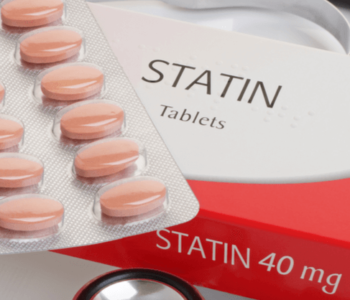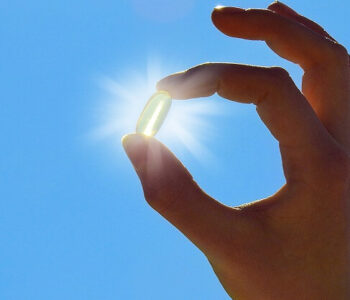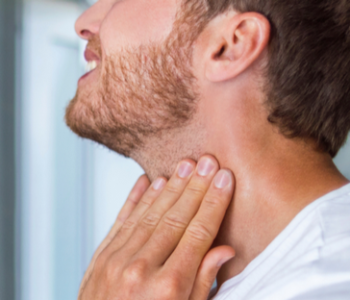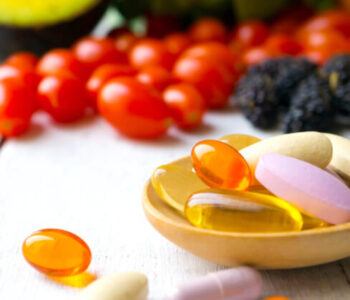In 30 seconds…
What are normal cholesterol levels? Good question. According to the NHS, healthy levels of total cholesterol are 5 mmol/l or below. Your high-density lipoproteins (HDL) should be above 1 and your low-density lipoproteins (LDL) below 3. Your levels of triglycerides, meanwhile, should be 2.3 or below.
However, in the UK, not everyone achieves healthy cholesterol levels. 60% of UK adults are thought to be over health recommendations. And, the more of this fatty substance in your blood, the greater the risk of heart disease or cardiovascular disease.
If you’re worried about your cholesterol levels, there are some straightforward ways to reduce them. Cut saturated fats, trans fats, and hydrogenated fats and boost your fibre intake. Lifestyle changes, such as exercise, can help too.
Understanding Cholesterol Tests
At its simplest, cholesterol is the sticky, fatty stuff that is moved around in your blood to help build and repair cells and tissues across your body. However, typically associated with an unhealthy lifestyle and a poor diet, it has become one of the most notorious parts of our health.
In reality, it’s vital for our health. Too much of it, though, and the problems it causes outweigh its benefits. And the trouble is that too many of us these days have too much of it. According to a study by the UK government, 60% of British adults have high cholesterol.
So, what are normal cholesterol levels? And what levels are healthy? Here, we’ll be looking at everything you need to know about the numbers behind your cholesterol test. So, let’s get started.
What is Cholesterol?
We said that cholesterol is not necessarily always the bad guy that we imagine it to be. Like most of the things in our bodies, it does have an important function.
In itself, cholesterol is a fatty substance that is produced in your liver and moves around in your blood. Its primary job is to enable your body to build cells and produce hormones and vitamins. All pretty crucial things. The trouble is that, when we have too much of it, it can cause problems.
Interestingly, high cholesterol isn’t a condition with symptoms of its own. However, its seriousness lies in the fact that it makes other conditions – heart attacks and strokes, for example – much more likely.
Cholesterol, Lipoproteins, and Triglycerides
To understand your test results, there’s some crucial terminology to understand. Cholesterol can’t move around by itself. Instead, it’s packaged with other fats called triglycerides into moveable little things known as lipoproteins. And this is what’s measured when you take a cholesterol test.
Lipoproteins famously come in two forms – so-called “good” lipoproteins and “bad” ones. More accurately, though, three types of cholesterol will be shown on your test, referred to as the following:
- High-density lipoprotein (HDL): HDL cholesterol, as it is sometimes known, is the “good cholesterol”. Essentially, this lipoprotein goes around the body collecting cholesterol so that you can flush it out of your body.
- Low-density lipoprotein (LDL): LDL cholesterol is the famous bad cholesterol. Simply, there is more actual cholesterol in these lipoproteins, as it is being transported around the body for use. Too much of this will cause the problems associated with high cholesterol generally: high blood pressure, atherosclerosis, and coronary heart disease.
- Non-HDL: Non-HDL tends to get forgotten from most cholesterol discussions. While LDL is the great villain of the cholesterol world, others also aren’t great. “Non-HDL” cholesterols are the total of all of these combined.
Remember these terms, because they will all be referenced in your cholesterol test. However, you’ll need to bear in mind triglycerides too. So what are they?
Triglycerides are the fats that cholesterol combines with inside lipoproteins. But they are also what is made from all of the spare calories that you eat in your diet. If you consume excessive calories, you have more triglycerides – which isn’t good for your cholesterol levels.
What are Normal Cholesterol Levels?
Now, let’s talk about your test. Your cholesterol test – or lipid profile, as it is technically known – will give you results for those aspects we have seen above: LDL, HDL, non-HDL, total cholesterol, and triglycerides.
So, what are healthy cholesterol levels? According to the NHS, your healthy readings should be as follows:
- Total cholesterol: below 5 mmol/l
- HDL: above 1 mmol/l
- LDL: below 3 mmol/l
- Non-HDL: below 4 mmol/l
- Triglycerides: below 2.3 mmol/l
While it all seems a little complex, it needn’t be. A cholesterol blood test will tell you all you need to know about your blood cholesterol levels. And, if you are in any doubt as to what they mean, your healthcare professional should be able to clear up any uncertainties.
How to Reduce Cholesterol
If a test reveals that you have high cholesterol levels – or higher levels than you would like – what can you do about it? Well, it’s not the end of the world, that’s for sure.
While you can find more details on smart ways to reduce cholesterol, here are some tips to get you started.
- Reduce fats. Diets with high quantities of saturated fats, including trans fats and hydrogenated fats, tend to cause high total cholesterol levels while increasing your “bad” cholesterol at the same time. Swapping saturated fats for unsaturated fats – such as those you find in oily fish, nuts, and avocados – can help to bring your cholesterol levels down.
- Exercise more. Regular physical activity boosts your HDL cholesterol levels while bringing down your total amount of cholesterol. You’ll need to do the recommended 150 minutes of moderate exercise weekly to feel the benefits. The good news is that it will reduce your overall risk of coronary artery disease too.
- Boost your fibre intake. Increasing your dietary fibre can help to lower LDL cholesterol levels. Found in whole grains, pulses, and leafy vegetables, it’s a real winner for a healthy lifestyle in general and is among the best vitamins to lower cholesterol.
- Stop the cigarettes – and reduce your alcohol consumption. If you need another reason to quit smoking – beyond the increased risk of heart disease and cancer – it makes blood cholesterol stickier, meaning it is more likely to clog up your blood vessels. Meanwhile, high alcohol consumption can contribute to high triglyceride levels
- Statins. If lifestyle changes don’t work for you, medication can help. Statins, for example, are the best known.

Help your body fight the good fight
Supplements are all-important when it comes to keeping your health at its best. All our health supplements are formulated by our medical team and packed with the best ingredients out there.
Key Takeaways
High cholesterol is a serious condition. But it is one that goes unnoticed by many adults, as it does not have any precise symptoms. Instead, the problem comes from the fact that it gives you a higher risk of heart disease – which can be life-threatening.
Normal cholesterol levels are below 5mmol/l in total. HDL should be above 1mmol/l and LDL below 3mmol/l. A cholesterol blood test offers a way to find out yours.











